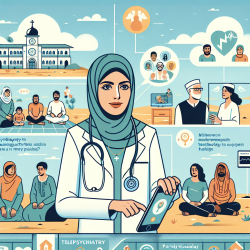Empowering Change: Harnessing Research to Combat Female Genital Mutilation
In the realm of global health, female genital mutilation (FGM) remains a critical issue affecting millions of women and girls worldwide. The practice, deeply rooted in cultural traditions, poses significant medical, psychological, and socioeconomic challenges. A recent systematic review titled "Female genital mutilation: a systematic review of research on its economic and social impacts across four decades" sheds light on these multifaceted consequences, emphasizing the need for comprehensive research and informed advocacy.
Understanding the Socioeconomic Impact
The review analyzed 198 articles over a 40-year period, revealing that while the medical and psychological consequences of FGM are well-documented, the socioeconomic impacts remain underexplored. Only 14% of the studies focused on socioeconomic consequences, such as school attendance, marriageability, and economic costs.
Key findings include:
- Direct economic costs: FGM-related obstetric complications in six African countries represent $3.7 million annually, highlighting a significant financial burden on healthcare systems.
- School attendance: FGM contributes to high dropout rates, as girls often marry immediately after the procedure, curtailing their educational opportunities.
- Marriageability: In some communities, FGM is perceived as enhancing marriage prospects, perpetuating the practice despite its harmful effects.
Implications for Practitioners
For practitioners, especially those in speech language pathology and related fields, understanding the broader implications of FGM is crucial. By integrating knowledge of the socioeconomic impacts into their practice, professionals can better advocate for affected individuals and communities.
Here are some actionable steps practitioners can take:
- Advocacy and Education: Use data-driven insights to educate communities about the harmful effects of FGM, emphasizing both health and socioeconomic consequences.
- Collaborative Research: Engage in interdisciplinary research to fill gaps in knowledge, particularly focusing on the socioeconomic aspects of FGM.
- Policy Influence: Advocate for policies that address the root causes of FGM, leveraging research findings to support legislative change.
Encouraging Further Research
The review underscores the need for more comprehensive research into the socioeconomic dimensions of FGM. Practitioners are encouraged to contribute to this body of knowledge by:
- Conducting qualitative studies that explore the cultural and social dynamics sustaining FGM.
- Developing intervention studies that assess the effectiveness of community-based programs aimed at reducing FGM prevalence.
- Collaborating with local and international organizations to gather data and share findings, amplifying the impact of their work.
By embracing a holistic approach that combines medical, psychological, and socioeconomic perspectives, practitioners can play a pivotal role in eradicating FGM and improving outcomes for affected communities.
To read the original research paper, please follow this link: Female genital mutilation: a systematic review of research on its economic and social impacts across four decades.










